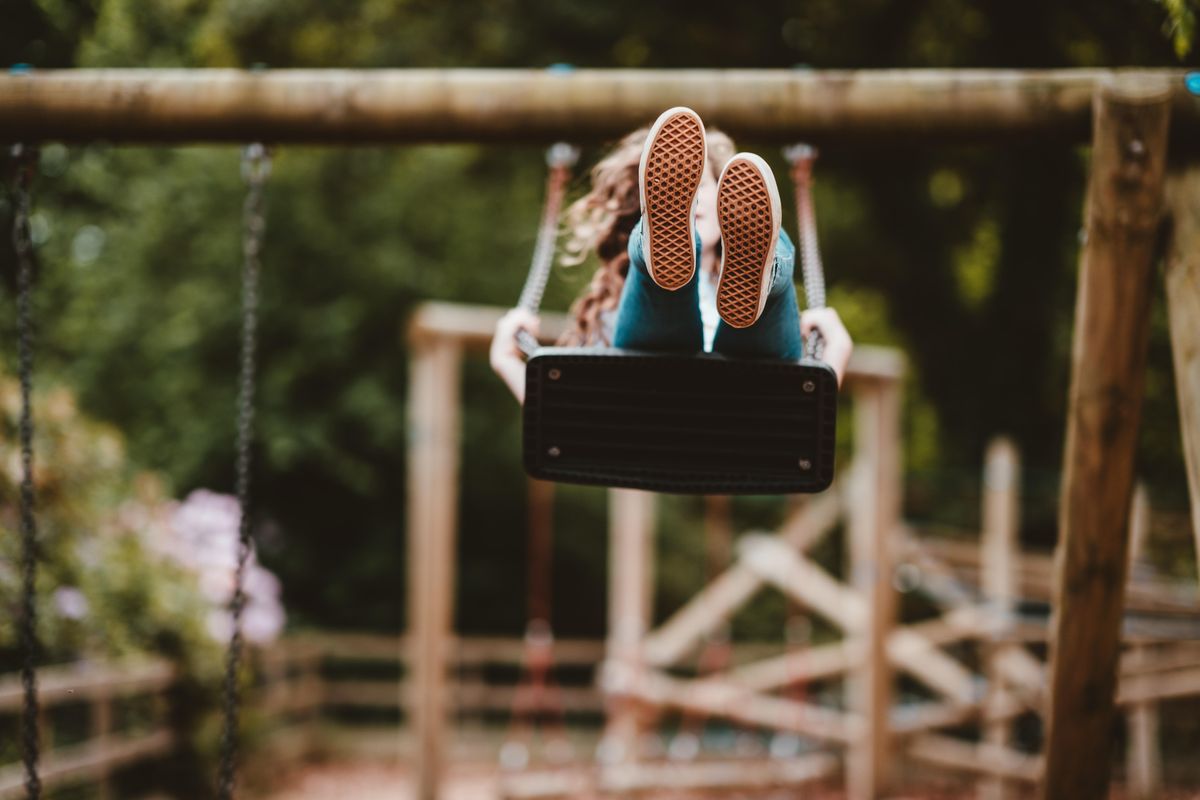14 things that will remain fun no matter how old you get
Your inner child will thank you for doing at least one of these.

Swings can turn 80-year-olds into 8-year-olds in less that two seconds.
When we’re kids, fun comes so easily. You have coloring books and team sports and daily recess...so many opportunities to laugh, play, and explore. As we get older, these activities get replaced by routine and responsibility (and yes, at times, survival). Adulthood, yuck.
Many of us want to have more fun, but making time for it still doesn’t come as easily as it did when we were kids—whether that’s because of guilt, a long list of other priorities, or because we don’t feel it’s an age-appropriate thing to long for.
Luckily, we’ve come to realize that fun isn’t just a luxury of childhood, but really a vital aspect of living well—like reducing stress, balancing hormone levels, and even improving relationships.
More and more people of all ages are letting their inner kids out to play, and the feelings are delightfully infectious.
You might be wanting to instill a little more childlike wonder into your own life, and not sure where to start. Never fear, the Internet is here. Reddit user SetsunaSaigami asked people, “What always remains fun no matter how old you get?” People’s (surprisingly profound) answers were great reminders that no matter how complex our lives become, simple joy will always be important.
Here are 14 timeless pleasures to make you feel like a kid again:
1. Playing with dogs
Doggos are basically furry children, so this one’s a no-brainer.
2. Legos
The only thing NOT fun about Legos is stepping on one. Everything else is pure magic.
3. Popping bubble wrap
With each satisfying “pop” sound, just imagine tiny bursts of dopamine flooding the brain.
4. Riding roller coasters
While it’s true that riding roller coasters might become less physically possible with age, barring that limitation—you’re never too old to ride one.
5. Arcades
Playing video games at home is cool, but there's a special thrill in seeing an arcade absolutely buzzing with different game sounds, colored lights, and other people enjoying themselves.
6. Go-karts
Because speeding in real life is irresponsible.
A quintessential sleepover activity that can easily be done with a roommate. Bonus points for surprise attacks.
8. Dinosaurs
Whether in toy or nugget form, dinosaurs are a delight.
9. Dressing up for Halloween
Halloween costumes can go from a fun form of playful expression in our younger years to a source of self-image issues in our teens and beyond (as so many things in life do). Hopefully though, dressing up for the spooky season can be a highlight on the calendar.
10. Water slides
Roller coasters in liquid form!
11. Dolls
We no longer have to hide our passion for toys under the serious moniker of “collecting.” Playing with dolls is a fun practice in storytelling and has even shown a very specific set of therapeutic benefits. Permission, granted!
12. Daydreaming
Remember peacefully imagining made-up worlds while staring up at the clouds? Those were good times.
13. Swings
Whether you are a traditionalist or prefer to go crazy and twist yourself up for some epic spins, a swing set is a perfect place to let your inner child out and get some exercise.
14. Taking sick days
Everything is more fun when you do it during a time you technically should be somewhere else.
This article originally appeared three years ago.

